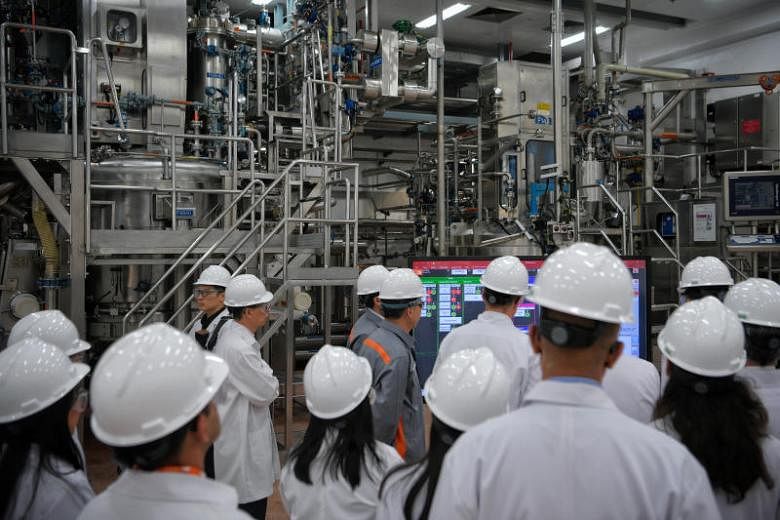SINGAPORE - Building collaboration between companies and the government and engaging workers are vital steps in ensuring Singapore stays a global biomedical hub, said Trade and Industry Minister Chan Chun Sing on Friday (July 5).
Mr Chan told a gathering to mark the official opening of a new manufacturing facility: "Today Singapore is one of the global biomedical hubs where high quality medical products are produced. And today, even though we are at the forefront of this industry, we never forget our fundamentals that have brought us here."
These include developing trusted partnerships with industry players, how Singapore protects intellectual property and how workers are trained.
But he noted that the nature of medicine has changed and demand in the sector now is for precision medicine, which calls for products that are custom-made for individuals.
"I am confident that we will (continue to do well) because this environment requires all the ingredients that Singapore has," Mr Chan said.
"Because in this environment, you must have an environment that enables the data to flow, to be exchanged, to be analysed, to be processed so that you can constantly develop these new products."
"This is the reason why as part of our wider ecosystem, it is so important for Singapore to make sure that we remain connected with the rest of the world."
He stressed that trust and collaboration between the Government, economic agencies and companies is also important as is bringing workers along with transformation.
Mr Chan was speaking at the opening of global healthcare company GSK's new $130 million pharmaceutical manufacturing facility in Pioneer developed as part of the GSK-Economic Development Board 10-year Singapore Manufacturing Roadmap.
The plant employs state of the art technology that enables continuous manufacturing instead of the usual batch production. One of the site's production buildings was also expanded.
Continuous manufacturing allows for medical production in 42 days, a process that took six months using batch production. The means in turn that active pharmaceutical ingredients for clinical trials can be produced faster.
Products are also more precise in quality and equipment used is more compact, which reduces the carbon footprint by 75 per cent.
The first medicine to be developed will be a new oral treatment for anaemia associated with chronic kidney disease.
GSK will also be better able to produce a key medicine for HIV treatment at the enhanced plant.
Mr Regis Simard, president of GSK's pharmaceuticals supply chain, said: "As one of the most innovative cities in the world, Singapore is home to an ecosystem of companies and organisations that are creating and exporting innovative solutions.
"Innovation is at the heart of GSK, we are glad to invest in scientific and technical excellence in Singapore to develop and launch the next generation of products which meet the needs of patients, payers and consumers."
The firm also noted that advanced manufacturing systems are vital for it to stay at the forefront of the pharmaceutical manufacturing sector.
Staff at the facility will be retrained to use the new technology. Some have already been through the process and will help to train the next group of workers.
Mr M. Selvaraju, a 56-year-old production leader, was sent overseas for training and has helped to coach others to learn new processes in continuous manufacturing.
He said: "Age is not the thing. If you are willing to work hard... the opportunities are there."


